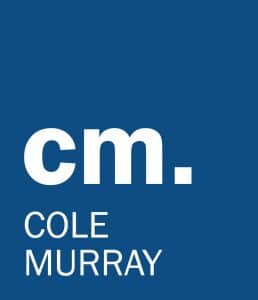Looking at buying your first home? Then your ‘borrowing power’ is a critical number to know.
Most lenders have online calculators to help you work out a rough estimate. But if you want a more precise figure before kicking off your house hunt, getting pre-approved by a lender is a great idea, and Cole Murray is here to make sure you get the best deal.
To maximise your borrowing power, check out the key things your lender will consider when assessing your application.
Your disposable income
How much money have you got left over after meeting all your living costs and other debt costs? This is a key thing your lender will look at.
Many lenders use standardised expenses, but if you have regular costs to meet (like high transport costs, school or childcare fees and online subscriptions), these will all be included in your servicing calculation, reducing your total disposable income.
To increase your affordability, look at where you can cut some regular expenses. For example, if you have monthly subscriptions to several streaming services, can you cut those back to one? The higher your affordability, the higher your borrowing power. Cole Murray Mortgage Advisers are happy to help you figure out where your finances are sitting and how to maximise their potential.
Your overall financial picture: credit scores and debts
To determine how much you can afford to borrow, your lender will consider your debt-to-income ratio, factoring in all your outgoings as well as your credit score.
Even if you have disposable income, a challenging credit history will damage your borrowing power, and so will a high level of debt. On this note, keep in mind that not all debts are created equal: your lender will look at a number of factors, including the type of debt you have and how it affects your overall financial health.
The bottom line? If you are looking at applying for a home loan, it’s a good idea to come up with a plan to improve your credit score and tackle debt head-on. Once again, our Team of friendly Mortgage Advisers will be happy to help you.
Your credit card limit
Credit Card debt isn’t necessarily ‘bad’ if you pay it off on time. What you may not know, however, is that even if you pay it off each month or rarely use them, your credit card limit can still affect your borrowing power.
The limit available will be calculated into your disposable income. For example, if you have a limit of $10,000 with nothing owing on it, your mortgage borrowing potential may still drop by thousands of dollars. If you’d like to maximise your borrowing power, our advice is to choose a low credit card limit (if possible), or close your credit card account altogether if you aren’t using it.
The size of your deposit
It might sound obvious, but the more money you have put aside for your property deposit, the easier it will be to reduce the amount you have to borrow (and perhaps get access to a more favourable interest rate).
While saving for a larger deposit isn’t always easy, there are ways to boost your down payment. For example, you could use KiwiSaver, get a HomeStart grant, or even receive a parental gift. Either way, how much will you need?
Under the current LVR (Loan to Value Ratio) restrictions, you will usually need a deposit of at least 20% to buy your first home as an owner-occupier. There are exceptions to this rule, and that’s why it’s important to talk with a Mortgage Adviser. By getting a clear understanding of your circumstances, an Adviser will be able to point you in the right direction.
Affordability is key: let us help you improve it
Like to find out more about your borrowing power and how you can optimise it? Cole Murray’s Mortgage Advisers are here to help. Please feel free to ask for a 30-minute no-cost, no-obligation chat and get your journey to home ownership started today!
It’s a service that comes at no cost to you*, and puts your interests first – learn more here.
An Adviser Disclosure Statement is available free and upon request.
* Our standard Mortgage Advisory service is provided free of charge as we are remunerated (paid) by the banks, but we also provide specialised services and advice for non-conforming, credit-impaired, business and complex cases. After our free initial no-obligation consultation, we will advise you if a fee may need to be charged before we undertake any work. In many cases we may find a simple solution for you.




